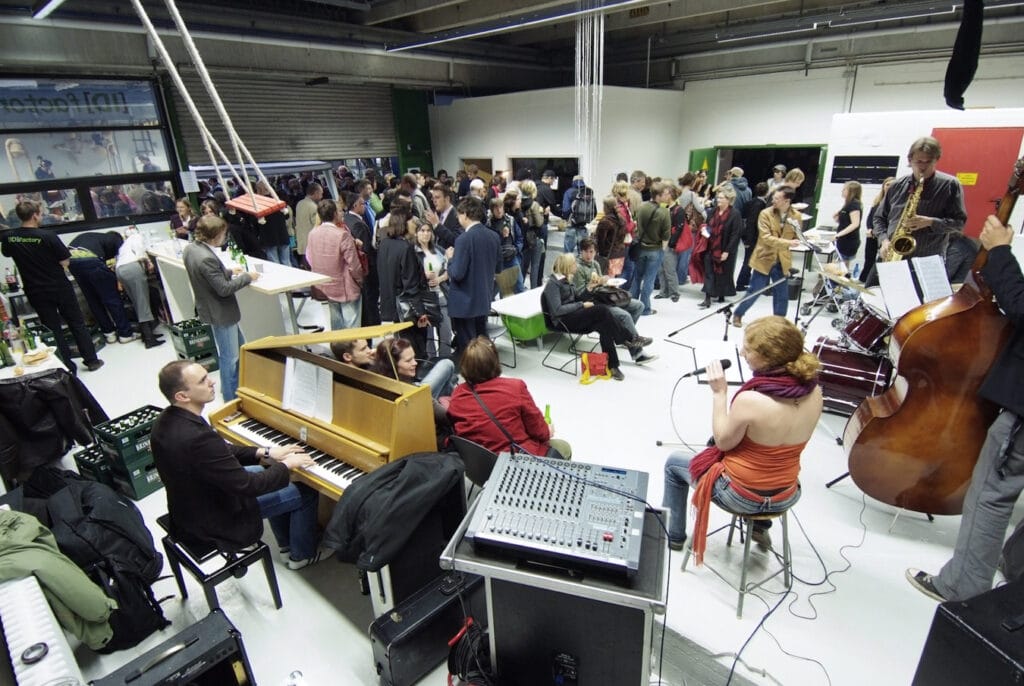An artistic attitude does not develop overnight. The process takes time and effort. But at the end of this path, completely new possibilities open up. In what way can business benefit from this potential? How can it create an environment in which this process can not only take place, but is also encouraged?
Art professor Ursula Bertram is dedicated to teaching and researching this subject, which is essential for Age of Artists, too: the transfer of artistic thinking and acting to other disciplines: “There is certainly such a thing as an artistic attitude, and there is a scientific attitude, too. For me, this attitude manifests itself by turning into something that resembles a second skin. A skin has to grow. This is almost like a biological process. You cannot remove a skin without inflicting injuries, and you cannot put it on like a garment. This is part of an attitude and an attitude of course needs a certain process, a certain amount of time, and of course, the will and the stamina. Once you have adopted an attitude, it is very easy to apply it to all areas. This means that the artistic attitude does not only let you create paintings, but allows you to access processes in totally different subject areas. It allows you to move into science, into business, everywhere.”

Bertram is confident that artistic approaches can be transferred to other areas. It is not primarily about an artistic product, because artistic thinking is by no means reserved for artists: “However, if we find ways to eliminate norms, patterns, models, recipes, or standards, ways to avoid prejudices, and to not allow pressure, fear, or failure – if you find, initiate, and generate such exercises or processes I think you can also do without art.Then you’re in the middle of the art, only that the results no longer look like paintings. I think this is key. If I strip an artist of their paintings, artistic thinking remains and that is the essence I can apply to other areas if it has become an attitude.” In business, however, things still have to change a lot, and a framework has to be created in which artistic processes are not only a means to an end: “If the people who work with me are well, if I can make them reach the peak of their capabilities, results are maximized. Not if I take something away from them or build competition, but if I support individuals in a way you conduct a jazz band: you glance at them, provide them with approaches and accompaniment and they play a solo until the next individual takes over. Getting that far would allow us to say: we did it.” This framework should still allow room for border crossing. Border crossing that is defining for the work and the development of the artist: “In retrospect, the artistic position that I represent means reaching borders and limits and trying to open new doors again and again. I have tried to unlock one gate after the other, and in some cases, with difficulty.”
Read the full interview to learn how Bertram encourages her students to be innovative, and how business and art can merge into a colorful picture.
The complete interview with Ursula Bertram in German language
Info
Text by Johanna Darbritz.
Translation by Hendrik Achenbach.
The interview was conducted by Dirk Dobiéy on 18/08/2014.
Image source: Dirk Dobiéy.
